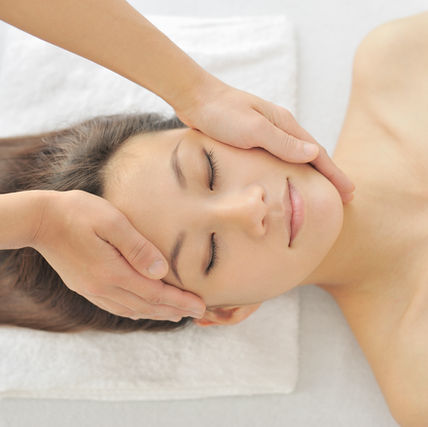
Menstrual Cycle 101
We move through two main phases in the menstrual cycle: the follicular phase and the luteal phase.
The Follicular Phase
This phase begins on day 1 of your period and continues until ovulation, usually around day 14.
At the start, your pituitary gland releases Follicle Stimulating Hormone (FSH), which signals your ovaries to begin developing follicles. As these follicles grow, they produce oestrogen.
Rising estrogen levels help your uterine lining thicken and prepare for a potential pregnancy. During this time, one follicle usually becomes dominant and healthiest.
Around days 10–14, this follicle releases an egg into one of the fallopian tubes, this is ovulation.
If sperm is present, this egg can be fertilised.
The Luteal Phase
After ovulation, the cycle shifts into the luteal phase (approximately day 15–28).
During this time, the ovaries release progesterone, which helps stabilise and nourish the uterine lining in case pregnancy occurs.
-
If the egg is fertilised, progesterone levels remain high, and eventually the placenta takes over hormone production to support pregnancy.
-
If the egg is not fertilised, progesterone levels drop and estrogen rises again — leading to the shedding of the uterine lining, also known as your period.
And so, the cycle completes on day 28, ready to begin again at day 1.
Follicular Phase:
Days 1-14
Day 1 is the first day of your menstrual cycle. The first day you start bleeding.
The follicular phase finishes just as ovulation is complete.
Luteal Phase:
Days 15-28
The luteal phase starts just after ovulation, and finishes the day before your next period.
Why Are My Hormones Out Of Balance?
Stress
Xenoestrogens
Birth Control Pill
Blood Sugar
Thoughts/Emotions
Gut Health
Dehydration
Diet
Poor Quality Sleep
Toxins
Excess Exercise
Some Medications
When Hormones Are:
-
Abundant Energy
-
Clear Glowing Skin, Nails, Hair
-
Elevated Mood
-
Sharper Mind
-
Deep, Restful, Rejuvenating Sleep
-
A Healthy Metabolism
-
Healthy Libido
-
Happy & Balanced
-
And More
Balanced
-
Weight loss or weight gain
-
Extreme fatigue
-
Thinning hair
-
Acne breakouts
-
Irregular periods
-
Diarrhea or constipation
-
Infertility
-
Low or o Libido
-
Hair loss
-
Depression or anxiety
-
And More
Unbalanced
Why Seed Cycling?
Seed Cycling Is a Gentle and Completely Natural Way To Balance Your Hormones.
Increased Energy Levels
Improved Digestion
Reduced PMS Symptoms
Reduced Inflammation
Reduced Hot Flushes
Restful Sleep
Balance Blood Sugar Levels
Sharper Mind
Mood Support
Less Bloating
Balanced Estrogen & Progesterone Levels
Weight Management
Glowing Skin
The Science Behind The Seed Cycle Seeds
Phase 1. (Follicular Phase) Days 1-14
Flax and Pumpkin Seeds
Flaxseeds:
A powerful ally for oestrogen balance flaxseeds are one of the most effective foods for supporting healthy oestrogen levels.
They’re the richest dietary source of lignans a type of phytoestrogen, which is a plant compound structurally similar to the hormone oestrogen.
Because of this similarity, lignans can help balance estrogen in both directions:
-
If your oestrogen levels are low, they can have a gentle, supportive effect.
-
If your oestrogen is high, lignans can help reduce excess levels.
Here’s how it works:
once lignans reach your gut, they bind to oestrogen molecules, which supports their elimination through your stool. This process reduces the chance of estrogen being reabsorbed by the liver into your bloodstream, helping to maintain hormonal balance.
Research also suggests that flaxseeds can lengthen the luteal phase of the menstrual cycle, which may improve the likelihood of ovulation. Additionally, they’ve been shown to reduce common PMS symptoms like cramping, breast tenderness, and mood swings.
For anyone experiencing irregular or missing periods, low progesterone, strong PMS symptoms, oestrogen dominance, or navigating post-menopause, incorporating flaxseeds into your daily routine may be a simple, nourishing way to support hormone health naturally.
Pumpkin Seeds:
Pumpkin seeds for Hormone Support.
Pumpkin seeds are an excellent source of zinc, an essential mineral that supports both testosterone levels and progesterone production as you move into the second phase of your cycle, when progesterone begins to rise.
Zinc also plays a vital role in strengthening the corpus luteum, the structure in the uterus that produces progesterone and stimulates the uterine lining to thicken in preparation for potential implantation.
Beyond zinc, pumpkin seeds are packed with a wide range of nutrients including iron, folate, and magnesium all of which are often lacking in modern diets.
Like flaxseeds, they’re rich in omega-3 fatty acids, which promote healthy blood flow to the uterus, boost progesterone secretion, and support strong, flexible cell membranes.
Pumpkin seeds also deliver a wealth of antioxidants and polyunsaturated fatty acids. They’re high in vitamin B2 (riboflavin), which supports skin health, digestive lining integrity, blood cell production, and brain function. In addition, they provide vitamin E, a powerful antioxidant that helps protect the body’s cells and has been linked to reducing PMS symptoms.
Research shows that the omega-3s and omega-6s found in pumpkin, sesame, sunflower, and flax seeds are essential for both hormone production and optimal follicle function.
Phase 2 (Luteal Phase) Days 15-28
Sunflower and Sesame
Sunflower Seeds
Sunflower seeds for Hormone & Whole-Body Health
Sunflower seeds are rich in selenium, a trace mineral that plays a vital role in reproduction, thyroid hormone balance, DNA synthesis, and protecting the body from oxidative stress and infection.
Selenium also supports the liver in detoxifying oestrogen, a key process during the luteal phase, when oestrogen levels naturally decline and are released through the body’s detox pathways.
In addition, sunflower seeds are packed with vitamin E, magnesium, and linoleic fatty acids, all of which support hormone health while also helping to prevent chronic illness.
Their powerful nutrient profile also provides anti-inflammatory benefits and has been shown to lower the risk of heart disease and type 2 diabetes, making sunflower seeds a simple yet potent way to support both hormonal balance and long-term wellness.
Sesame seeds:
Sesame seeds also contain lignans, shown to balance fertility hormones, lower inflammation and help to block excess oestrogen during phase 2 while sunflower seeds, high in the trace mineral selenium, assist it the detoxification process of hormones in the liver.
There is new emerging research that shows the combination of Vitamin E and Selenium combination may be beneficial for improving fertility and reserves of ovaries.
There are hundreds of real life testimonials available on line showing using these nutrient packed seeds aid in hormone health, and we are excited there are more emerging studies and research showing the incredible benefits of seeds on our hormonal health and overall wellbeing.
Dr. Jolene Brighton with a background in nutritional bio-chemistry, a doctorate in naturopathic medicine, plus degrees in chemistry, nutritional bio-chemistry and clinical nutrition says his about seed cycling...
"Seed cycling has long been used to support women's hormones by supplying them with the nutrients they need at specific phases of their cycle. I recommend seed cycling for hormone balance in both my clinic and book, (Beyond the Pill), because it is an effective and gentle way to support women's hormones."
How Do I Seed Cycle?
Days 1-14
Phase 1
Follicular Phase
Eat Daily 1-2 Tablespoons of
Pumpkin & Flaxseeds
Days 15-28
Phase 2
Luteal Phase
Eat Daily 1-2 Tablespoons of Sesame & Sunflower Seeds

Consume 1-2 Tablespoons Each Day of Pumpkin and Flaxseeds
Consume 1-2 Tablespoons a Day of Sesame and Sunflower Seeds
First Day Of Menstruation
Days 15-28
Days 1-14
My Cycle's Not Regular How Do I Seed Cycle?
Optimally for fertility and balanced hormones a 28 day cycle is ideal.
Irregular Periods
If your period is not regular, we recommend you start taking Phase 1 seeds (pumpkin and Flax) on the first day of bleeding, and continue taking Phase 1 up until day 14, on days 15-28 take 2 tablespoons each day of phase 2 (sesame and sunflower seeds)
This will gently nudge your body into finding that natural 28 day cycle rhythm.
Absent Periods
If you are not getting your period at all, we recommend starting Phase 1 with the next new moon date, and then switching to Phase 2 on Day 15. (See the diagram below)
Long Cycle (over 28 days)
If your menstrual cycle is longer than 28 days don't worry, simply start seed cycling on the first day of your period, consume 2 tablespoons of pumpkin and flaxseeds daily for 14 days and on day 15 switch to consuming 2 tablespoons daily of sesame and sunflower seeds, at the end of the 28 days, stop seed cycling and recommence on phase one on day one of your next menstrual cycle, this will gently encourage your body to bring your hormones back into balance.
Short Cycle (under 28 days)
Alternatively if your cycle is less than 28 days simply start seed cycling on day one of your menstrual cycle, consume 2 tablespoons of pumpkin and falxseeds daily for 14 days, on day 15 start consuming 2 tablespoons daily of sunflower and sesame seeds, until the first day of your next period where you swap back to Phase 1 pumpking and flaxseeds, this process will gently encourage your body into an optimal menstrual cycle rhythm and help you get back on track.
If you have any other questions regarding seed cycling and your cycle, see our FAQ's or feel free to contact us
Days 1-14
Luna Cycle
New Moon

Beginning On the New Moon Eat 1-2 Tablespoons Of Pumpkin Seeds and Flaxseeds Each Day For 14 Days.
On Days 15-28, Consume 1-2 Tablespoons Of Sunflower and Sesame Seeds
Full Moon
Days 15-28
How To Eat Your Seeds:




By Themselves
Breakfast Bowls
Smoothies
Salads





Muffins
Stirfry's
Bread
Soup
You Can Seed Cycle
At Every Phase Of Life
First Period


Pre Baby


Post Partum




Perimenopause
Menopause


Post Menopause


Australia's Most Comprehensive Seed Cycle System
The Seed Cycle System, Australia’s Most Comprehensive Hormone Balance Program
At the Seed Cycle System, our mission is simple: to help women balance their hormones naturally with a truly holistic approach.
We know that wellness isn’t just about what you eat, it’s about nourishing your whole being.
That’s why the Seed Cycle System goes beyond seeds alone.
Your Seed Cycle System bundle includes:
-
Two Phases of Organic Seeds (4 seeds in total) are carefully paired to support your body through each stage of your cycle.
-
Four Herbal Elixirs: one for each week of your cycle, designed to balance, nourish, and harmonise your endocrine system.
-
Your Online Wellness Portal: with access to recipes, meditations, breath work, and rituals to restore calm, support your nervous system, and create harmony within.
This is a comprehensive, multi-layered program that empowers you to use food and nature as medicine while also tending to your emotional and mental wellbeing.
Because true balance is never one-dimensional, and neither are you.








